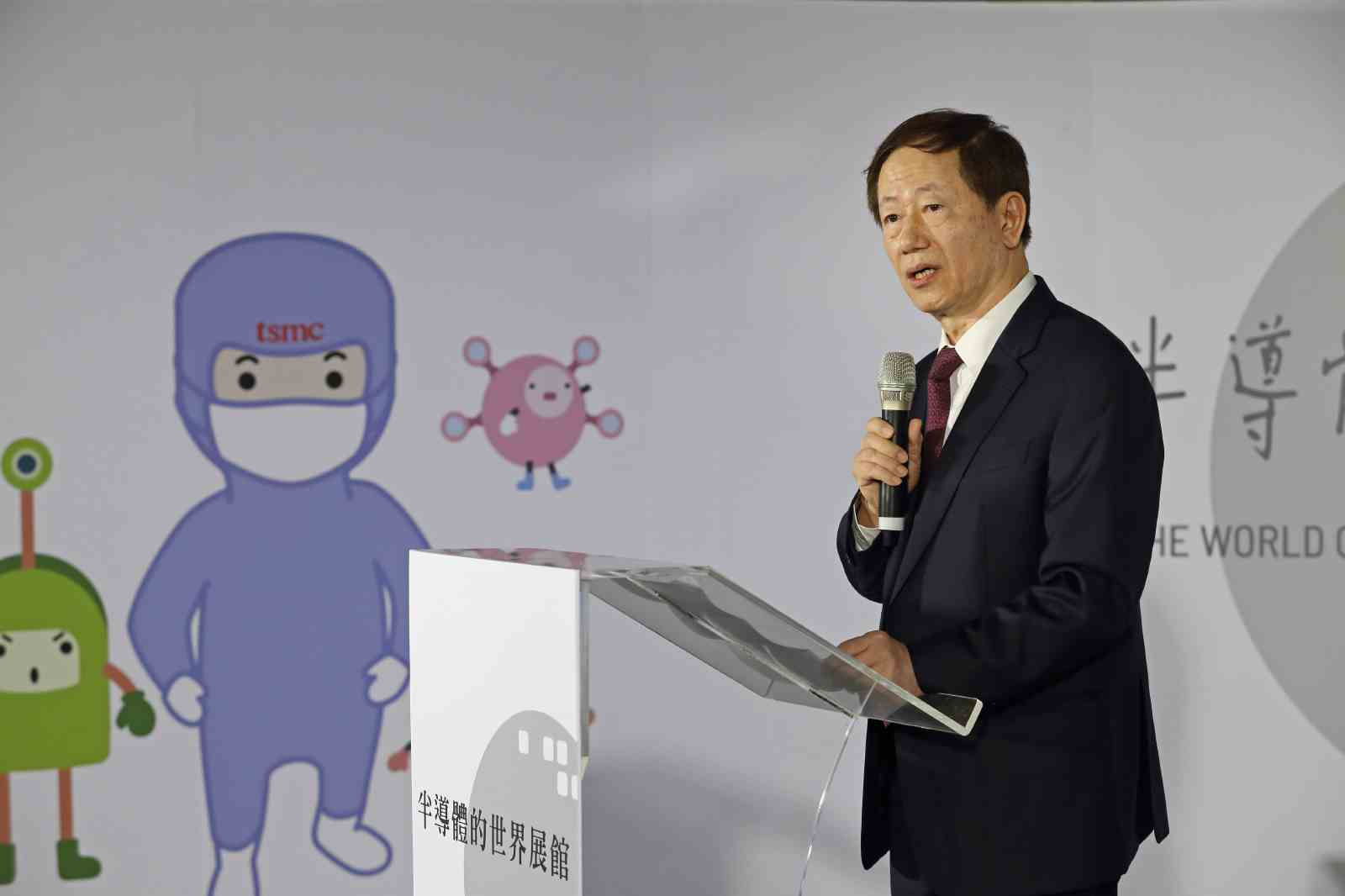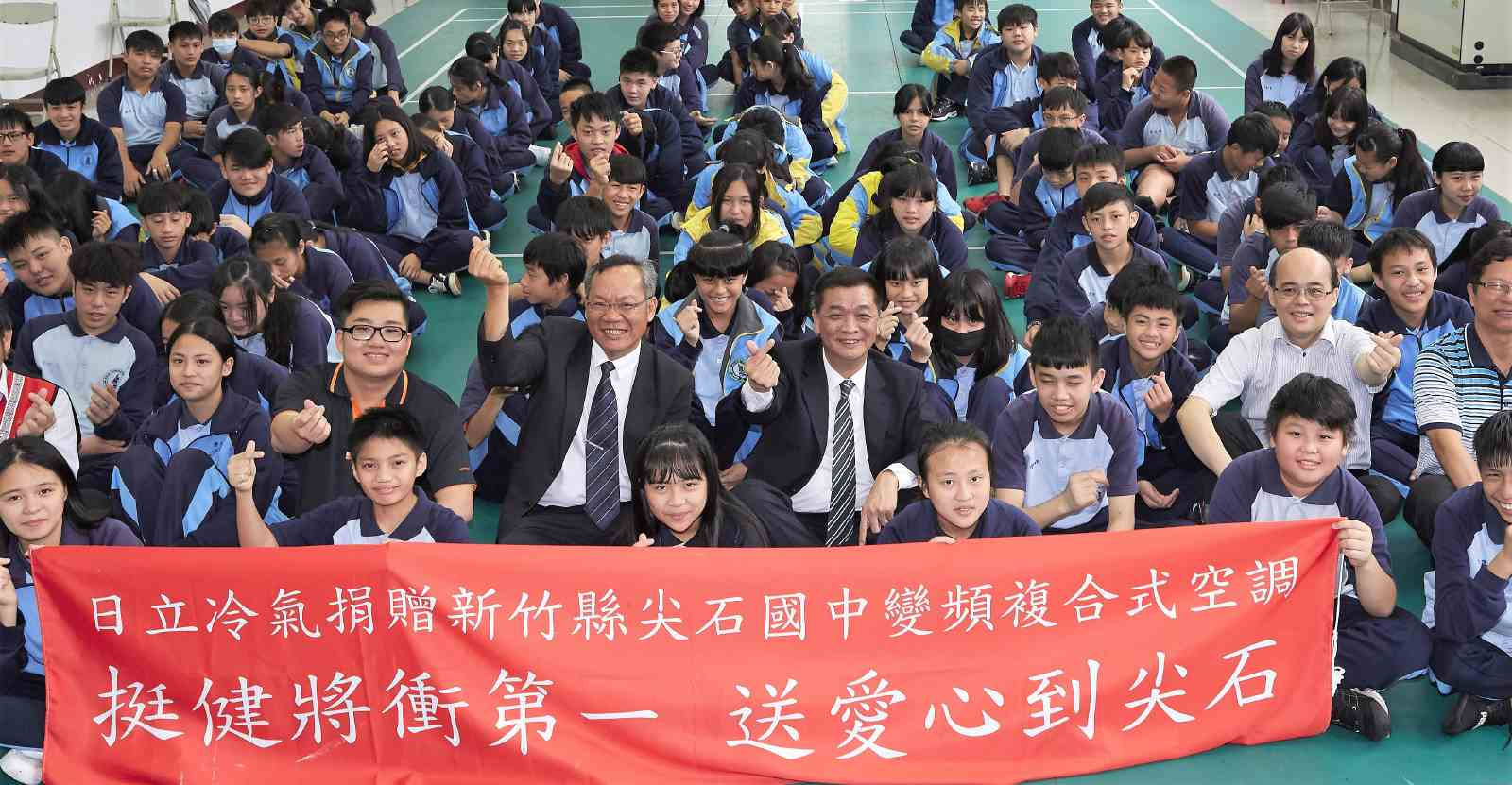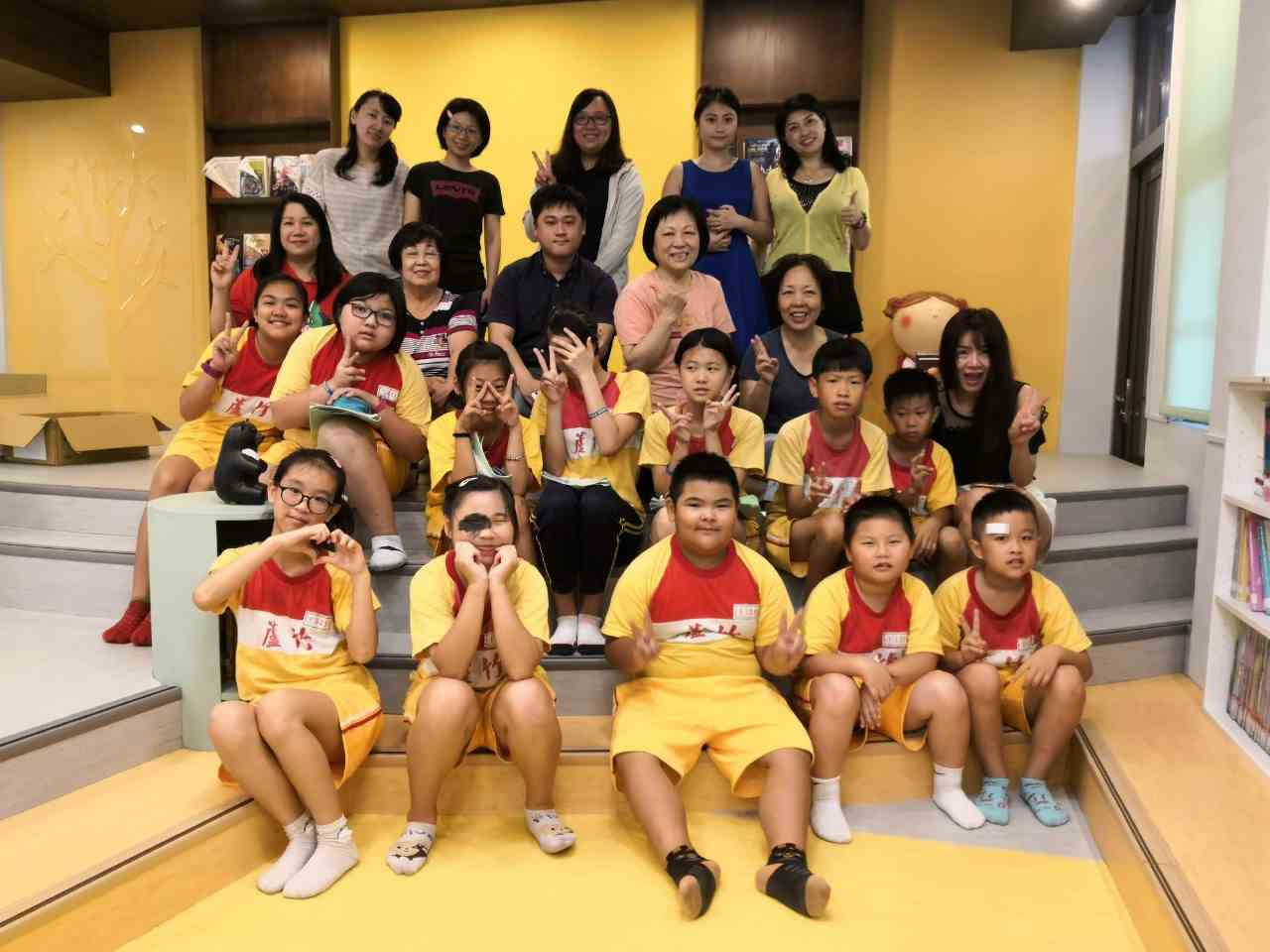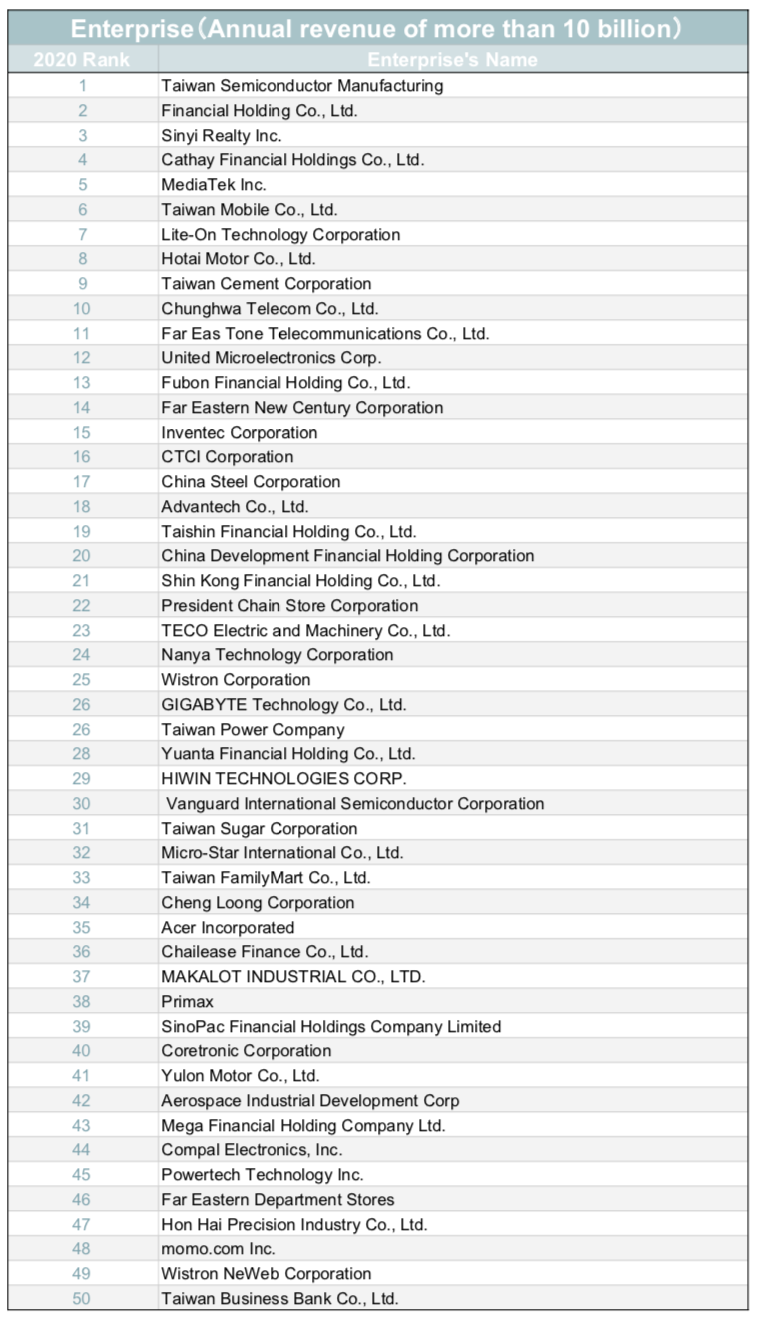Investor Interest in ESG-Conscious Companies Skyrockets

Source:Source : TSMC
In the wake of the coronavirus pandemic, investment in the securities of socially responsible enterprises has ballooned. Corporate sustainability has become the hottest keyword in investor circles. The just-published results of CommonWealth Magazine’s Corporate Citizen (CSR) Awards, now in their 14th year, show that nothing is receiving greater attention this year than “local revitalization.” What are Taiwan’s leading corporate citizens undertaking to fulfill their responsibilities toward the environment, society and governance?
Views
Investor Interest in ESG-Conscious Companies Skyrockets
By Jimmy HsiungFrom CommonWealth Magazine (vol. 705 )
From foreign investors to small shareholders, investment in companies that try to limit their impact on the environment, are socially responsible and practice good corporate governance, also known in short as ESG, has exploded this year. Not only have more than half of all institutional investors around the world adopted ESG principles in asset management, Taiwan’s ESG funds have taken second place in Asia behind Japan in terms of scope.
As investors no longer look solely at financial statements when deciding where to put their money, Taiwan’s Top 100 in corporate sustainability has become an important pointer for investment and corporate development strategy.
The average profit rate of the 85 Taiwanese enterprises in the ranking stood at 12 percent, which is more than twice the 5.86 percent average for Taiwan’s Top 2,000 Enterprises.
What does the ranking tell us about corporate sustainability trends?
Trend 1: Industrial leadership
It is not easy for a company to make it into the sustainability ranking. A company taking the lead in more than one industry sector translates into bonus points. Taiwan Semiconductor Manufacturing Company (TSMC), which continues to take the crown in the large enterprise category, is the best case in point.

TSMC, which has been included in the Dow Jones Sustainability Indices (DJSI) for 19 years in a row, is not only No. 1 in social involvement but also on three other fronts. In corporate governance, for instance, TSMC is leading according to several benchmarks including diverse board composition, board of directors self-assessment, and independent directors holding more than half the seats.
In the environmental field, TSMC’s moves are also being watched closely. Last month, a corporate power purchase agreement between TSMC and Danish offshore wind farm operator Ørsted was announced in what was touted the largest-ever such renewable energy deal. TSMC has also joined RE100, a global renewable energy initiative of companies that are committed to achieving 100% renewable electricity. For Alan Lin Tze-luen, deputy executive director of the Cabinet’s Office of Energy and Carbon Reduction, this represents the dawn of a new era. “In Taiwan’s corporate world, this is of epochal significance; it means that we have already entered a new era in terms of renewable energy use by domestic companies,” says Lin.
Biomedical company TCI Co. Ltd., which grabbed the top spot in the medium-sized enterprise category for the first time this year, also joined RE100 two years ago. In order to achieve the goal of using 100% renewable energy and live up to its mission of “making facial masks with solar power”, the company has taken various measures such as planting trees, building green buildings and setting up a clean, zero carbon factory.
Trend 2: Meeting local demand
Since the outbreak of the coronavirus pandemic, international institutional investors are paying greater attention to the social aspect of ESG. Not only are proportionally far more “social bonds” being issued than “green bonds”, the requirements being imposed on businesses regarding social factors such as employee welfare and caring for disadvantaged communities are as demanding as in the environment and governance fields.
This trend is evident in this year’s ranking. Among the newcomers are Yuanta Financial Holding, Taiwan Family Mart, momo.com, MediaTek, Hotai Motor, Taiwan Cement, and Chunghwa Telecom. They all made the list because they are able to come up with active responses to address the needs of Taiwanese society.
Currently the most palpable social issue in Taiwan is “local revitalization” or “placemaking” in order to inject new life into the island’s underpopulated rural towns and villages, and create new opportunities to make a living there to prevent a further exodus and attract new residents from the cities. MediaTek, Taiwan Cement and Chunghwa Telecom are all involved in relevant projects.
“Although companies are doing their share, we are still far away from the ultimate goal of bringing the young people back to the rural villages or making people move to the remote countryside from other places. But at least the first step toward the involvement of local communities has been made,” notes Feng Yen, professor at the Department of Social Work of National Taiwan University.
MediaTek, Sinyi Realty: Competitions to Involve Young People
Various large companies foster the involvement of young people in local communities through contests and competitions. MediaTek, for instance, is appealing to young people with an ambition to bring about change to use creativity and technology to solve problems in local communities.
Although the competition is being held for just the third time this year, Lee Ji-ren, vice chairman of the Cheng Zhi Education Foundation, which supports remote elementary schools, applauds the effort. He observes that MediaTek uses a systematic approach in developing its projects to understand the context of rural communities that lack people and technology, while also bringing into play its core strengths as a tech company. Although the company has not been involved for very long, it can be expected to exert considerable social influence with its activities, Lee believes.
When talking about corporate community involvement through competitions, Sinyi Realty’s pioneering We are One project for community building comes to mind. Noting that the competition is in its 15th year in a row this year, Howard Chou, the real estate broker’s chief strategy officer, says that more than NT$40 billion has been spent so far on more than 10,000 projects. Of the 386 communities in Taiwan, only four have not submitted proposals.
Chou points out that Sinyi Realty is not involved in the evaluation process but entrusts the selection of proposals that communities submit to a jury of experts. Furthermore, the selection mechanism has evolved into a workshop where experts of the jury and proposal submitters can interact. On top of that, it provides a platform for public and private players to actively cultivate more young talent to get involved in community building.
Chunghwa Telecom: Creating Empowerment Workshops
Chunghwa Telecom is employing a different approach, devoting resources to empowerment workshops. So far, 89 “digital good neighborhoods” have been established by the telecom provider, where tutoring is provided for children from socially disadvantaged families, services for senior citizens are offered, and local industries are promoted.
There are also numerous ways of getting involved in communities to respond to local stakeholders.
Far Eastern New Century, Taipower, Taiwan Cement: Growing Local Roots, Jointly Prospering with Communities
Taiwanese textile conglomerate Far Eastern New Century, for instance, hosts a marathon at its chemical fiber plant in Xinpu Township in Hsinchu County every year. At the same time, a fun fair is held where local specialty businesses are invited to set up stalls to promote local agriculture and tourism.
State utility Taipower illuminated the fortress-like Shuinandong Smelter complex in the hillside of Ruifang with a spectacular light show to boost tourism. The “Remains of the 13 Levels”, as the site is also known, played an important role in Taiwan’s mining industry but is fenced off from visitors due to soil pollution. The “light up” event, a cooperation between renowned light designer Chou Lien and artist Joyce Ho that merged lighting design and installation art, drew a crowd of 12,000 people.
Presently, Taipower is planning to repurpose the site by restoring existing paths and adding trails and observation decks to create a win-win situation for tourism development and cultural heritage preservation.
The newest example of corporate community involvement is Daka park by Taiwan Cement. Last year, Taiwan Cement began to transform the premises of its cement plant in Heping in Hualien County into a tourism spot called Daka Market. It is the first cement plant in Taiwan that is open to the public during operation. Thanks to this project, Taiwan Cement earned high scores for social involvement and environmental sustainability, which launched the company into the top ten for the first time.
Daka Market preferably hires young people from the local indigenous Truku people and offers startup mentoring for about a dozen local residents from the Heping and Aohua villages who want to build a business or promote Truku culture. Backed by the group’s own hotels, the Heping plant works with several indigenous villages in the area by visiting individual families to develop the local gastronomy and tourist maps. Already a new mutually beneficial relationship between industry and society is taking shape here.
“We don’t know where the limit is, so we just give it a try; people are limitless, and imagination is limitless,” says Taiwan Cement Chairman Nelson Chang.
Given the onslaught of the pandemic, companies attach also greater importance to employee care.

Trend 3: Employee Care Becomes Focus
Among the Top 100 Corporate Citizens are five where non-managerial staff makes more than NT$2 million per year. They are MediaTek, Hon Hai Precision Industry, Pixart, Hotai Motor and Netherlands-based foreign enterprise ASML Holding.
That ASML Taiwan, which participated in the survey for the first time, was able to make it into the top five spots is largely owed to its exemplary employee care.
Since the semiconductor equipment maker attaches importance to its code of conduct, human rights, the environment and labor regulations, ASML headquarters has assigned a dedicated ethics officer to the Taiwan subsidiary, which has 2,600 employees. The human resources officer also concurrently acts as an ethics advisor/consultant. The company’s intranet features a “speak up” service website. During employee orientation training, newcomers are encouraged to report violations of the code of conduct or labor rights directly on that website online.
Moreover, employees who have been posted to the Taiwan subsidiary from abroad receive a subsidy of 10,000 Euros to 16,000 Euros per family per year to pay for airfares for an annual trip home. Taiwanese employees receive a NT$6,000 baby bonus per birth. Thanks to this benefit, which is rarely seen among foreign enterprises in Taiwan, ASML received the second-highest score for corporate commitments in the foreign enterprise category.
Electronic automotive component maker Actron Technology Corporation, which grabbed the top spot in the “Small Giants” category of small- and medium-sized enterprises, also goes out of its way on employee welfare.
The company has built a complete framework to create a happy workplace. Employees receive a baby bonus of NT$20,000 per child that is even paid out retroactively, meaning that the bonus can be claimed for every child that was born after the founding of the company in 1988.

Paying out of his own pocket, Actron Chairman Lu Ming-kuang even provides student grants to reduce employees’ financial burden of school education. From birth to the first college degree (under the age of 23), every child of an employee can collect NT$10,000 in grants per year.
As for salaries and incentives, the company, which has 667 employees, has committed to distribute at least five percent of its after-tax earnings in employee bonuses every year. Aside from the annual bonus, there are various incentives for quarterly performance, patents, innovative proposals and so on. Last year, every Actron employee received an average of NT$210,000 in incentives and awards.
“Nearly 80 percent of employees in Taiwan are working at small- and medium-sized companies. Honoring those who care for their employees will have a greater effect,” says Ho Chin-Tsang, director general of the Small and Medium Enterprise Administration under the Ministry of Economic Affairs.

Have you read?
♦ A Breath of Scented Fresh Air for Stale Household Cleaner Brand
♦ The Nonagenarian Taiwan Billionaire Pioneering Biodegradable Plastics
♦ In Search of the Next TSMC
Translated by Susanne Ganz
Edited by TC Lin
Uploaded by Penny Chiang






